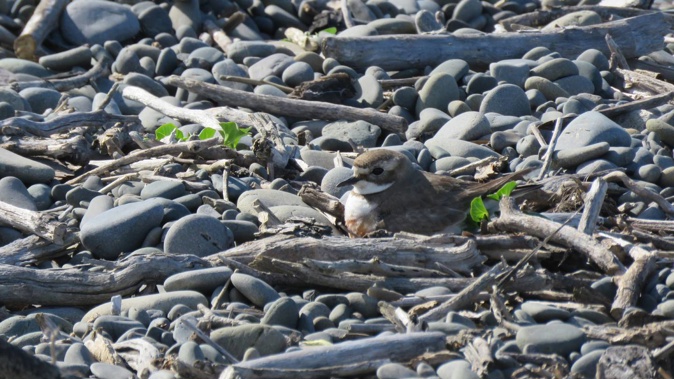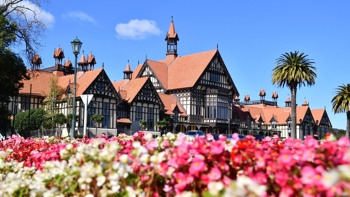
By Samantha Gee of RNZ
Several banded dotterel nests in the Waimakariri River have disappeared after Defence Force vehicles were seen doing driver training in the area.
Keystone Ecology ornithologist Niall Mugan identified four banded dotterel and two wrybill nests with eggs a week ago (October 13) while surveying the area for a company seeking resource consent to extract gravel from the riverbed.
The New Zealand Defence Force confirmed it used the riverbed for driver training this week, and Mugan said photos showed the vehicles heading in the direction of the identified nests.
Since then, two of the dotterel nests had disappeared, with another was found in between the vehicle tracks.
“We have these birds we are trying to protect and yet the army seems to be driving down the middle of a braided river at the height of the breeding season - it’s something we need to stop as soon as we can.”
He wants to raise awareness of the rare birds currently nesting in Canterbury’s braided rivers, to stop people inadvertently destroying their habitat.
/cloudfront-ap-southeast-2.images.arcpublishing.com/nzme/GTBJEAHXSWHFD466VXWL6WP22I.jpg)
A fresh dusting of snow on the Waimakariri River. Photog / George Heard
Banded dotterels are endangered and classed as declining, while wrybills are classified as a threatened species due to their low and declining numbers.
Mugan said when birds were disturbed off their nests, even for as little as five minutes, it could result in egg failure.
A New Zealand Defence Force spokesperson said six MHOV HX60 vehicles used the Waimakariri River on Wednesday as part of their driver training programme.
No warning signs of bird nesting areas were seen during the training, but staff would be reminded of the sensitive nature of the lower Waimakariri River and to incorporate this information into the driving training programmes.
ECan parks and forests manager Chuck Dowdell said while it was not illegal for people to drive on the riverbed, rangers regularly raised the issue with riverbed users and highlighted it through news and social media during the bird nesting season between September and February.
It did not have any signs up along the Waimakariri, advising that nesting birds were in the area, but recommended all vehicles stuck to well-formed tracks and kept a look out for colonies or nesting sites during breeding season.
NZ Defence Force vehicles in the Waimakariri River, driving across a nesting bird habitat. Photo: Defence Force
But Mugan said the birds nested in open gravel areas, with the nests almost impossible to see.
“If you don’t know what you are doing when you are driving out there, you are quite likely to drive over them.”
He said habitat disturbance from river users was one of the main factors in the birds’ decline.
“The vast majority of people aren’t aware that we have these really unique birds breeding on these riverbeds, that are the last bit of true biodiversity in Canterbury’s braided rivers, everything else has basically been cleared out for farmland.”
Mugan said in other parts of the world, there would be no access to riverbeds where rare and vulnerable birds nested during breeding season, which was typically between September and February.
“These little fellas are hiding out there on this riverbed and they are as unique to New Zealand as the kiwi, the takahē and the kākāpō.”
Department of Conservation principal science advisor Colin O’Donnell said a range of birds including banded dotterel/tūturiwhatu, black-fronted tern/tarapirohe and wrybill/ngutuparore nested in South Island braided rivers like the Waimakariri at this time of year.
Vehicles in riverbeds had the potential to damage nests or disturb breeding birds and O’Donnell said people should consider four-wheel driving elsewhere in the spring and summer months, when birds were nesting.
- RNZ
Take your Radio, Podcasts and Music with you

/cloudfront-ap-southeast-2.images.arcpublishing.com/nzme/IBWYLYEG3BB4PKZ7N6F5WD3H3U.JPG)








